In January, Ally Coffee’s Central America Buyer, Bram de Hoog, visited Honduras to explore sourcing opportunities. Here are his field notes.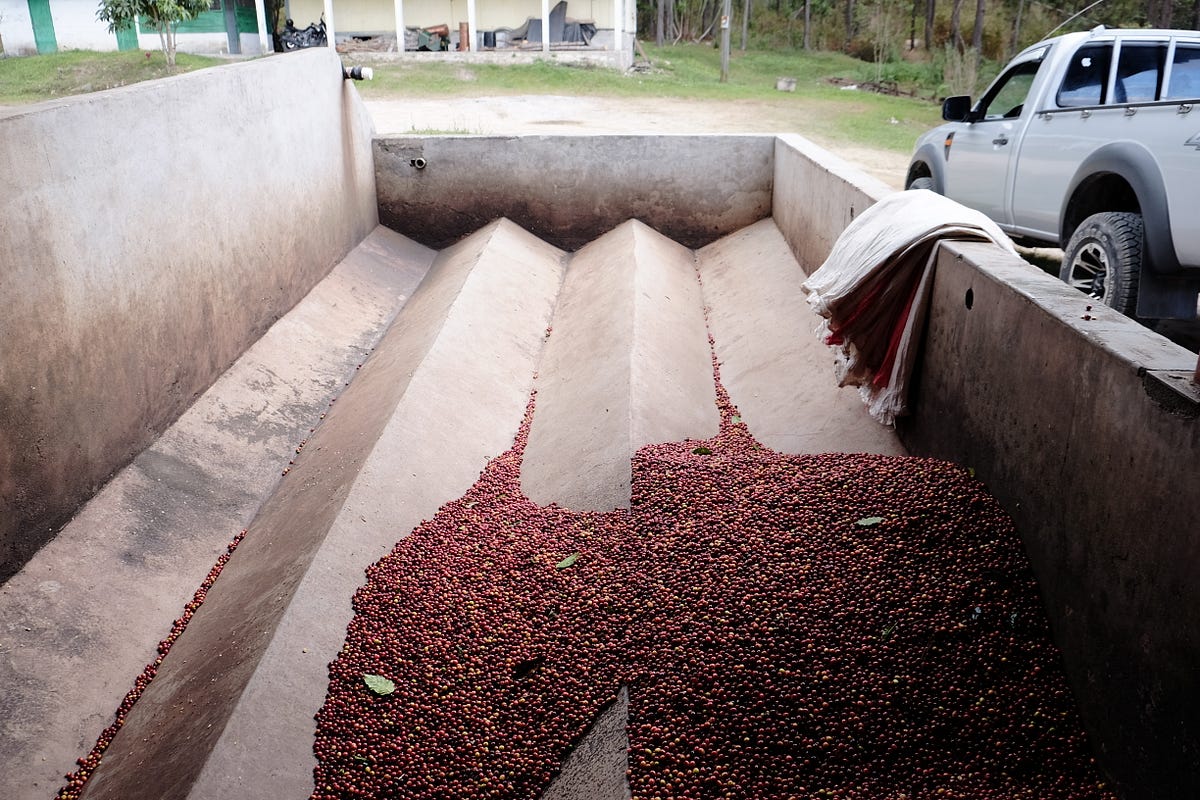 Choachapa Mill
Choachapa Mill
Day 1: Marcala, La Paz
The trip started out in the well-known Marcala region. The first stop was the Exportadora Choachapa mill. Coffee is received from farmers here in both cherry and parchment forms. The wet mill works with the traditional fermentation model in which coffee is dried on concrete patios. There is also a dry mill to hull and sort coffee.
In the afternoon, I joined Dimas, the owner of Choachapa, at his farm La Victoria. Many farms in this region are spread out in multiple parcels. The farm lies at an altitude of 1450 meters above sea level and has a of mix varieties: Catuaí, Bourbon, Catimor, and a bit of Pacamara. Dimas’ grandfather once owned much more land but lost it over the years andDimas has been trying to recuperate it to build a new farm. The love Dimas has for his farm can be seen in his great knowledge of every corner of the terrain. He knows the story of how most trees were planted and stopped to save seedlings found on the road.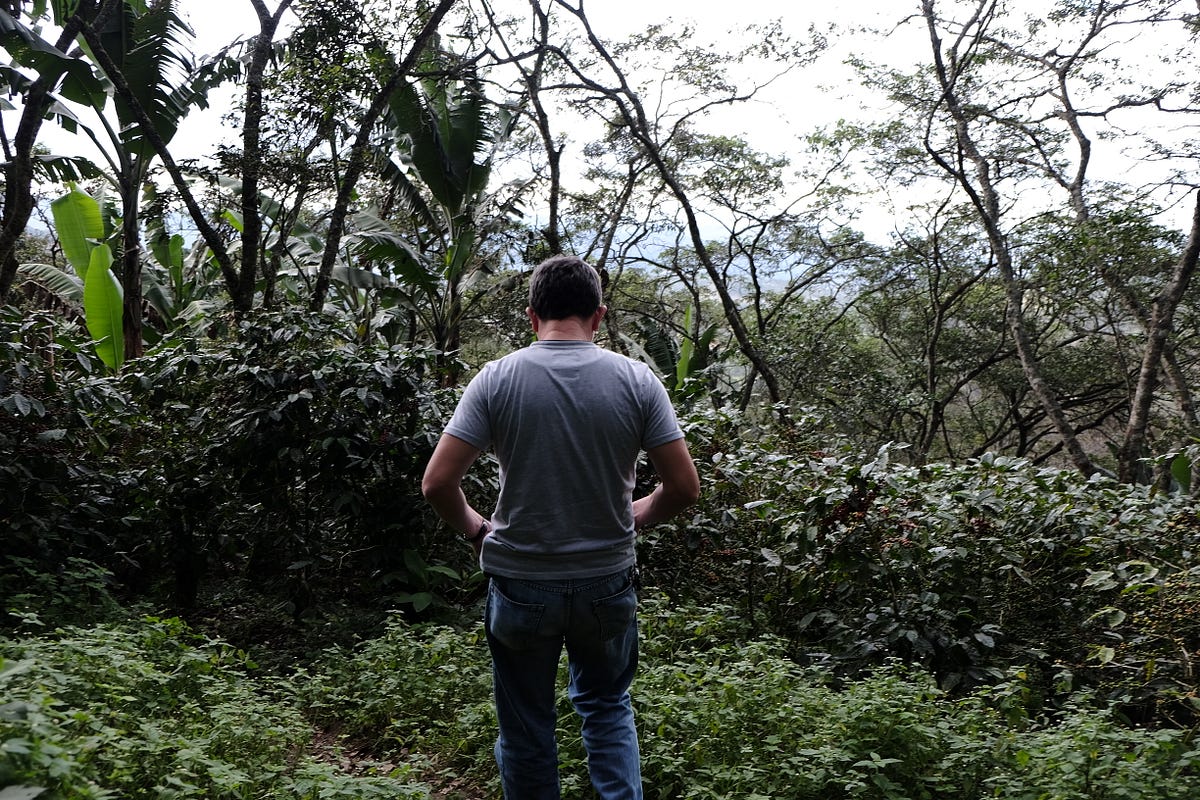
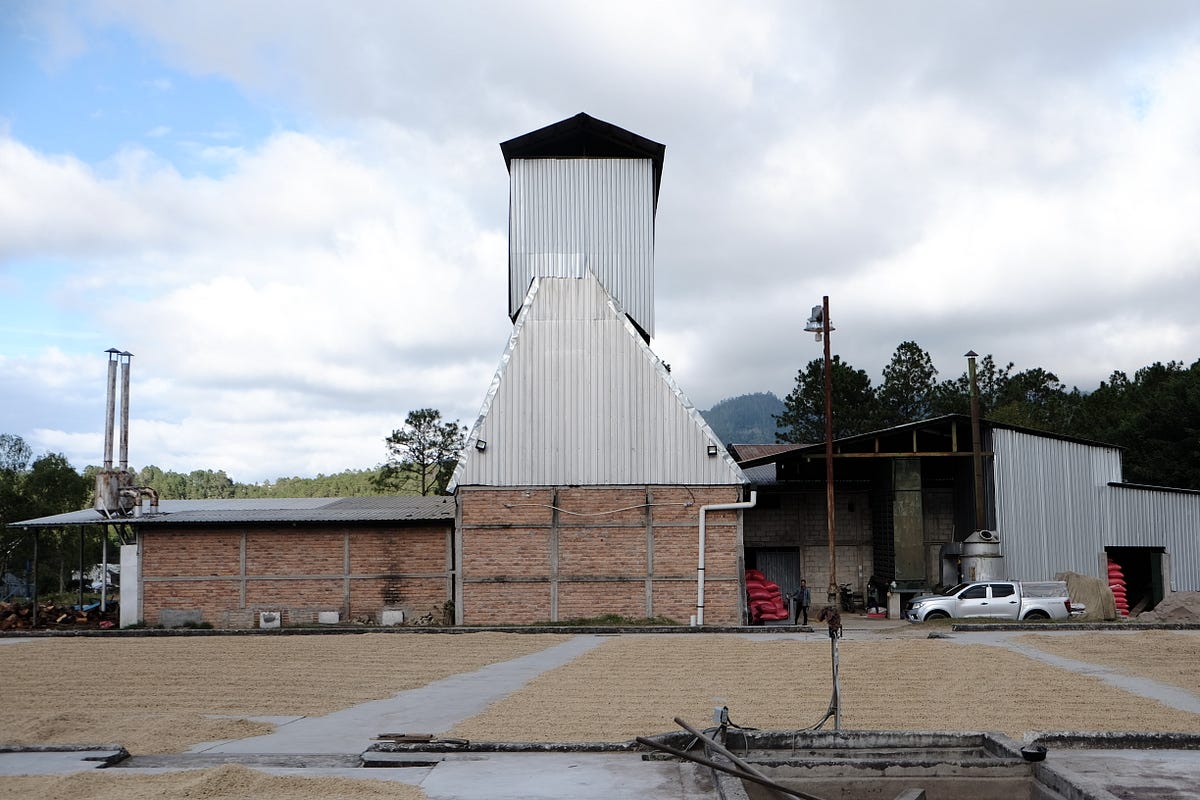 Above Dimas Antonio on his farm. Choacapa Mill below.
Above Dimas Antonio on his farm. Choacapa Mill below.
Day 2: Marcala, La Paz
The second day started cupping with Choachapa’s Rony Gamez, his team, and Pedro Turcius. The first table was type samples of last crop and the second was new offers. The type samples included some great coffee with citric acidity, especially from the Intibuca department. The second table had great Catuai from Intibuca, and Parainema from El Paraiso. These coffees had a bit more body and brightness, with some very floral Catuai coffees with notes of green tea and tropical fruits.
In the afternoon, I drove to San Jose de La Paz with Pedro. He, his brothers, a cousin, and his mom have several plots of land, which they manage together. Most farms are 100% shaded and the region is still struggling with la roya leaf rust management. One plot had one thousand healthy organic Geisha plants at 1500 masl.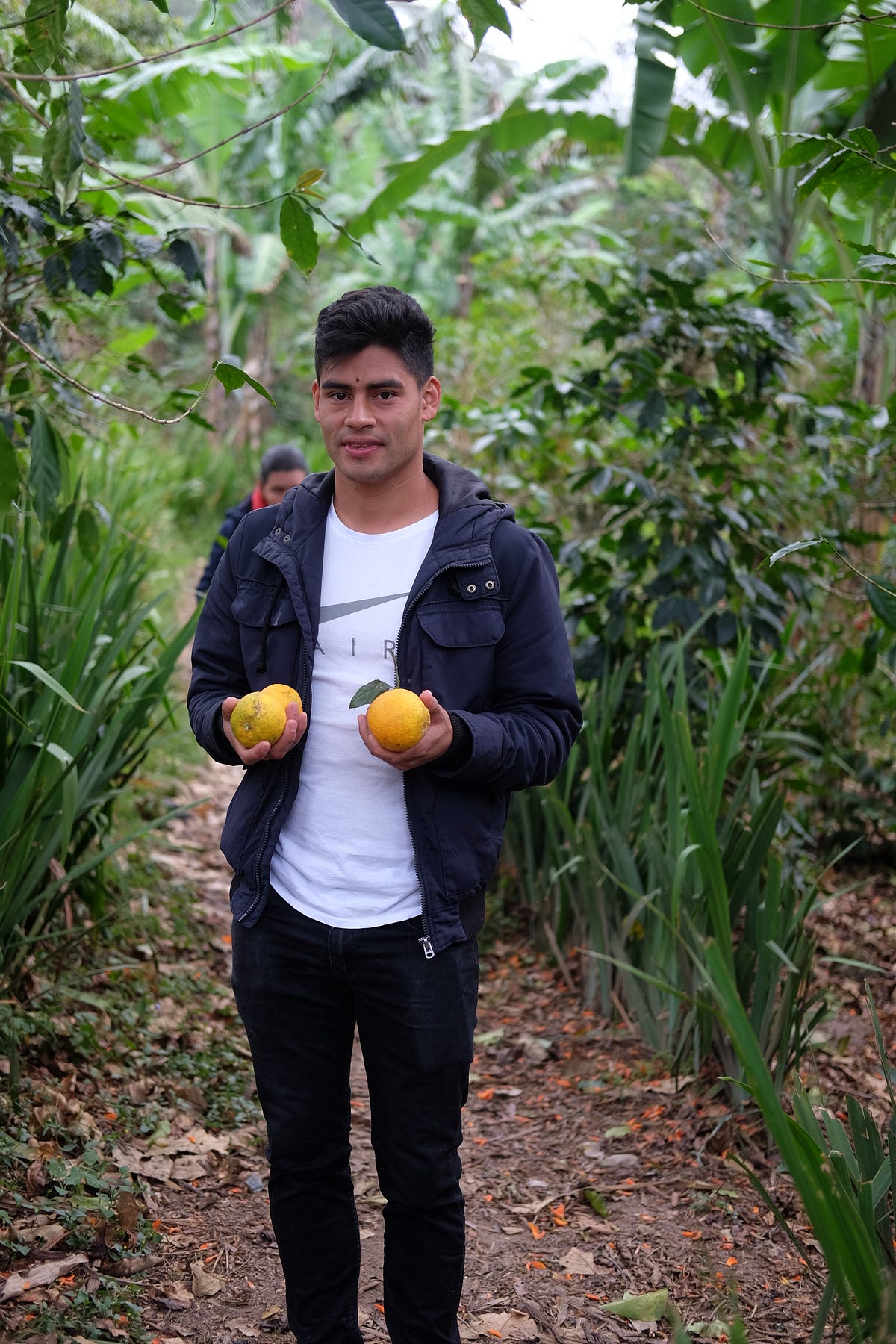 Napoleon Zelaya showing farm produce.
Napoleon Zelaya showing farm produce.
Day 3: Marcala, La Paz
Today started at 18 Conejo, a family business headed by the mom, Dulce, with eight employees. Flhor de Maria Zelaya is in charge of commercialization of green coffee for export. The team works out of an office and cupping lab in Marcala. We first went to the farm, which consists of more than 20 parcels. Bourbon, Catuai, Parainema and Catimor varieties grow between 1300 and 1400 masl. 18 Conejo’s main attribute is being the first certified biodynamic coffee farm in Central America.
This principle of biodynamic farming starts with organic production and continues by using only locally available materials. The family uses an extensive program of soil preparations based on science and spirituality. These concentrates are applied to the soil in very small quantities but go a very long way in creating nutrition for the plants. The concentrates are made of ingredients such as dried flowers and spices and buried in animal organs such as the bladder as well as the skull. The biodynamic principles are very elaborate and unique, which has earned 18 Conejo international fame and awards.
In the afternoon I joined the COMICOVEL team. COMICOVEL is supported by Catholic Relief Services (CRS)’s Cosecha Azul project, which preserves and manages freshwater sources on coffee farms in Central America.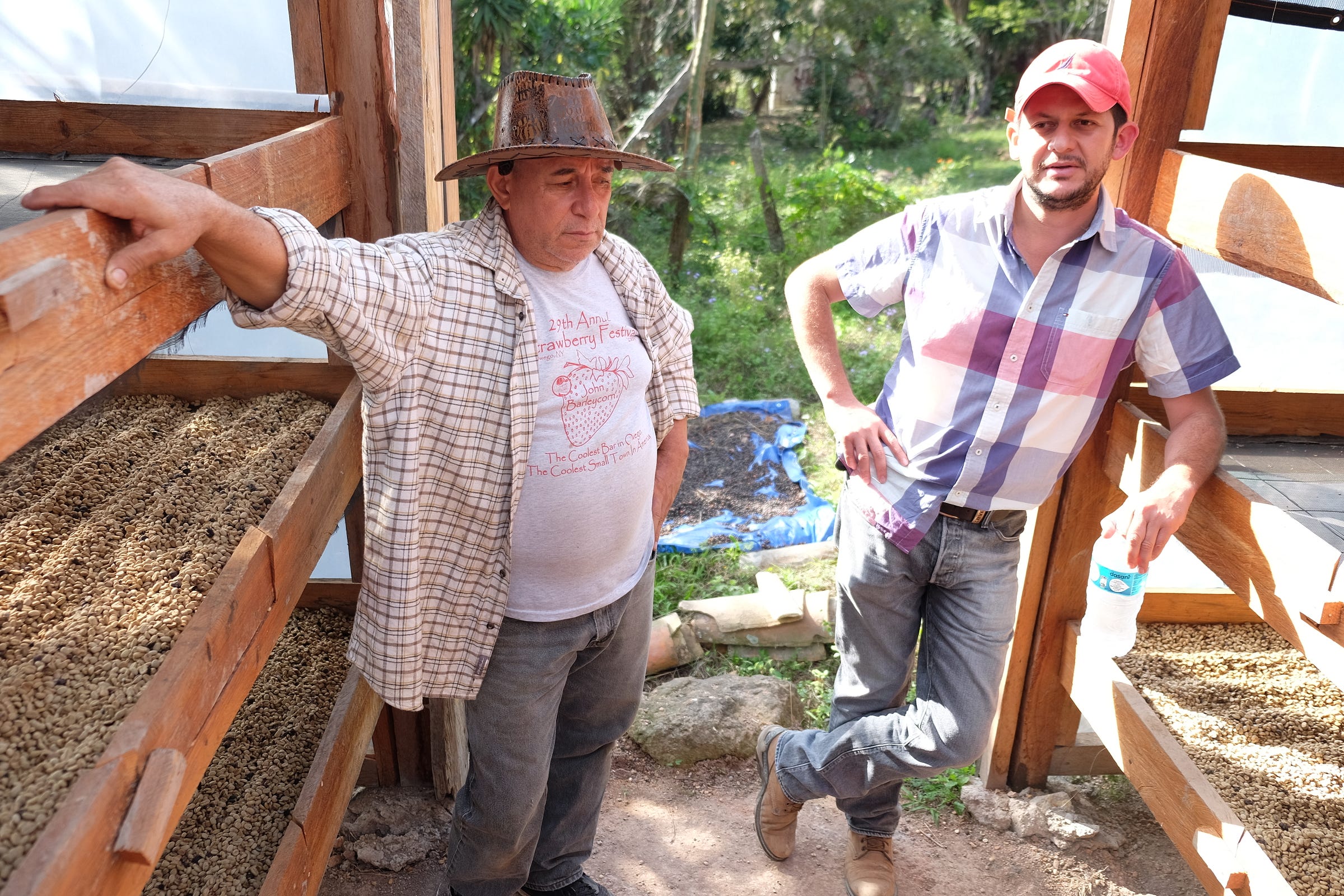 Carlos of COMICOVEL and Don Chepe inspecting the drying beds
Carlos of COMICOVEL and Don Chepe inspecting the drying beds
Day 4: Lempira and Opalaca
On this day I visited five different farmers who work with COMICOVEL in the Lempira and Opalaca region. The first visit was to Don Chepe, whose farm is planted entirely under the shade of pine trees. This creates a carpet of pine needles on the soil, which preserves the soil’s nutrients and helps the organic production. Next, we visited Antonio Vasquez’s farm at 1700 masl. He has planted one thousand Geisha trees and has prepared microlots, demonstrating the potential of microlots within the cooperative. COMICOVEL members’ farms overall had great elevations and a mix of Lemira, CR Noventa, Parainema, and Catuai varieties.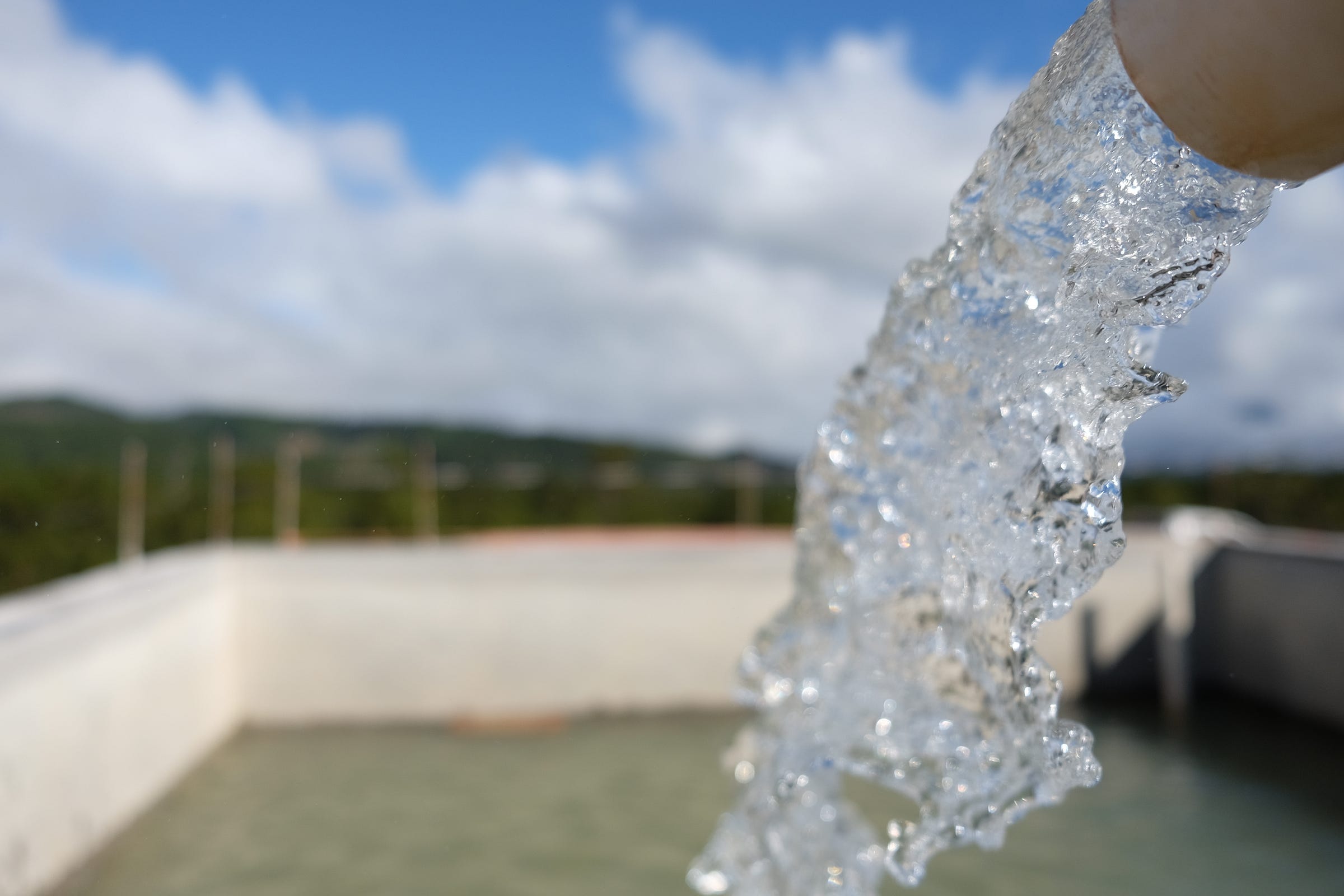 Clean, fresh water used for processing.
Clean, fresh water used for processing.
The co-op was established through the Cosecha Azul project by CRS. Carlos is an agroforestry agronomist and became involved in COMICOVEL through Cosecha Azul. In total, Cosecha Azul works with 1400 producers to improve water sources on and near farms and gives technical assistance to produce coffee organically and under shade, especially focused on the integration of local pine trees. From this project came the need to commercialize, and the co-op was born. Now, the co-op consists of about 200 producers and all are in the process of certifications, with 70 already FTO certified. This is the first year COMICOVEL is exporting certified coffees and is eligible to earn the associated premiums.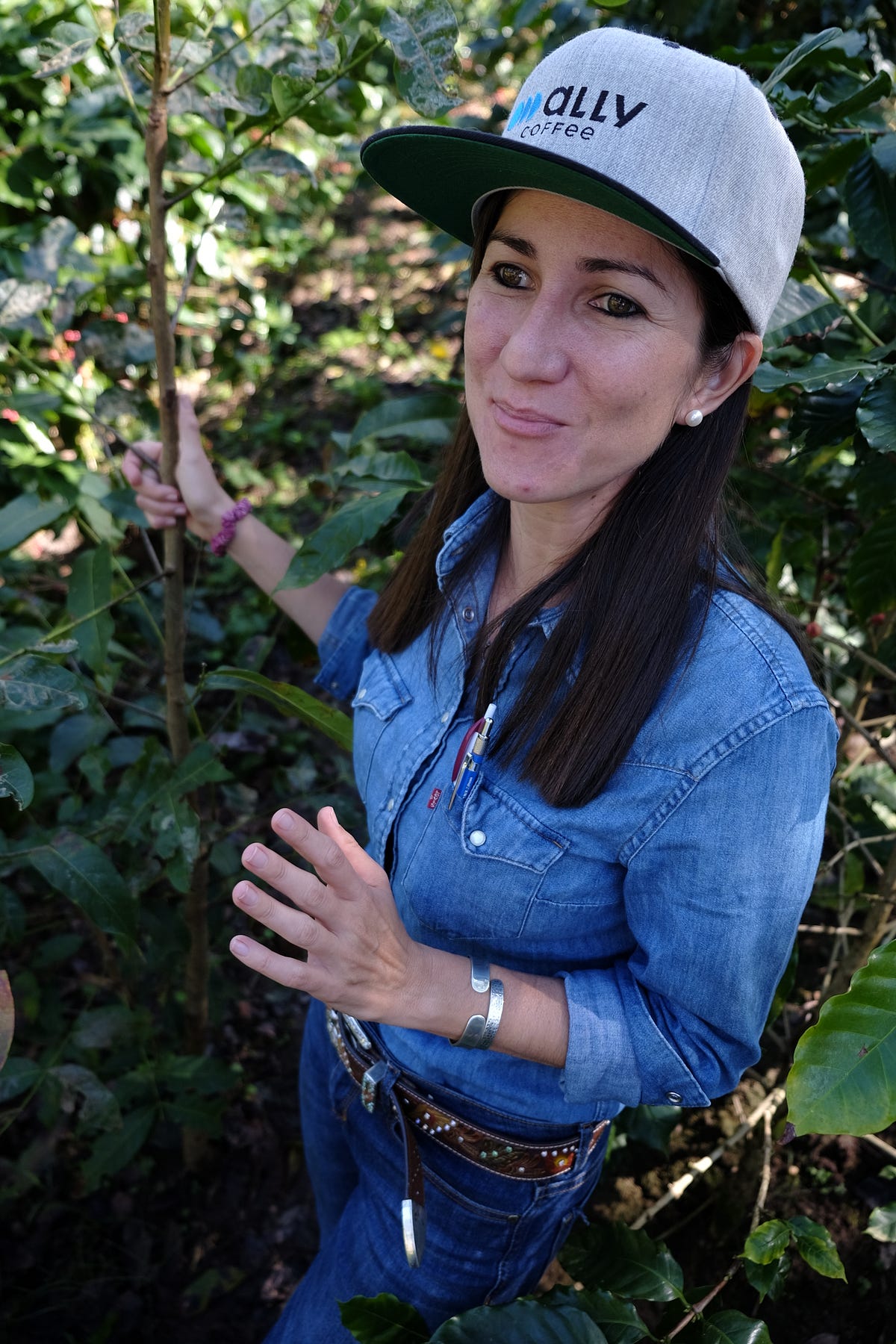 Katia Duke sharing her passion for coffee
Katia Duke sharing her passion for coffee
Day 6: Ruinas de Copan
I spent Saturday with Katia Duke at her farm in San Isidro, only a fifteen minute drive from the town of Ruinas de Copan. The area is quite dry and dusty, similar to Marcala, Intibuca, and Opalaca. The farm has been in Katia’s family for generations and her family has always produced coffee traditionally and sold the coffee in parchment to the local intermediaries. Katia spent most of her youth on the farm and was dedicated to following the tradition of her parents. She studied agronomy at the prestigious San Morano agronomic university in Honduras. In 2012, the roya leaf rust epidemic hit Honduras and most of the crop was destroyed. This urged Katia to actively change the way she and her family think about coffee.
The first step for Katia was to better understand the specialty coffee industry. She took various courses and become a certified barista and roaster. She opened her own coffee shop and started roasting the farm’s coffee as well. Naturally, the next step was to grow specialty coffee for export. After much discussion with her father, she was granted her own plots of land to farm as she likes. Now, five years later, these experiments have given many fruits.
Katia has not only been able to produce outstanding coffee and develop relations with roasters, she has also become a leader in her community. The growth of her farm and the community have been mutual. The flagship projects have been building a school and supplying a nutritional program. This, in itself, is a great achievement, but it also has the deeper effect of inspiring the community. Coffee can be the way forward and even more so when it is a woman leading that movement.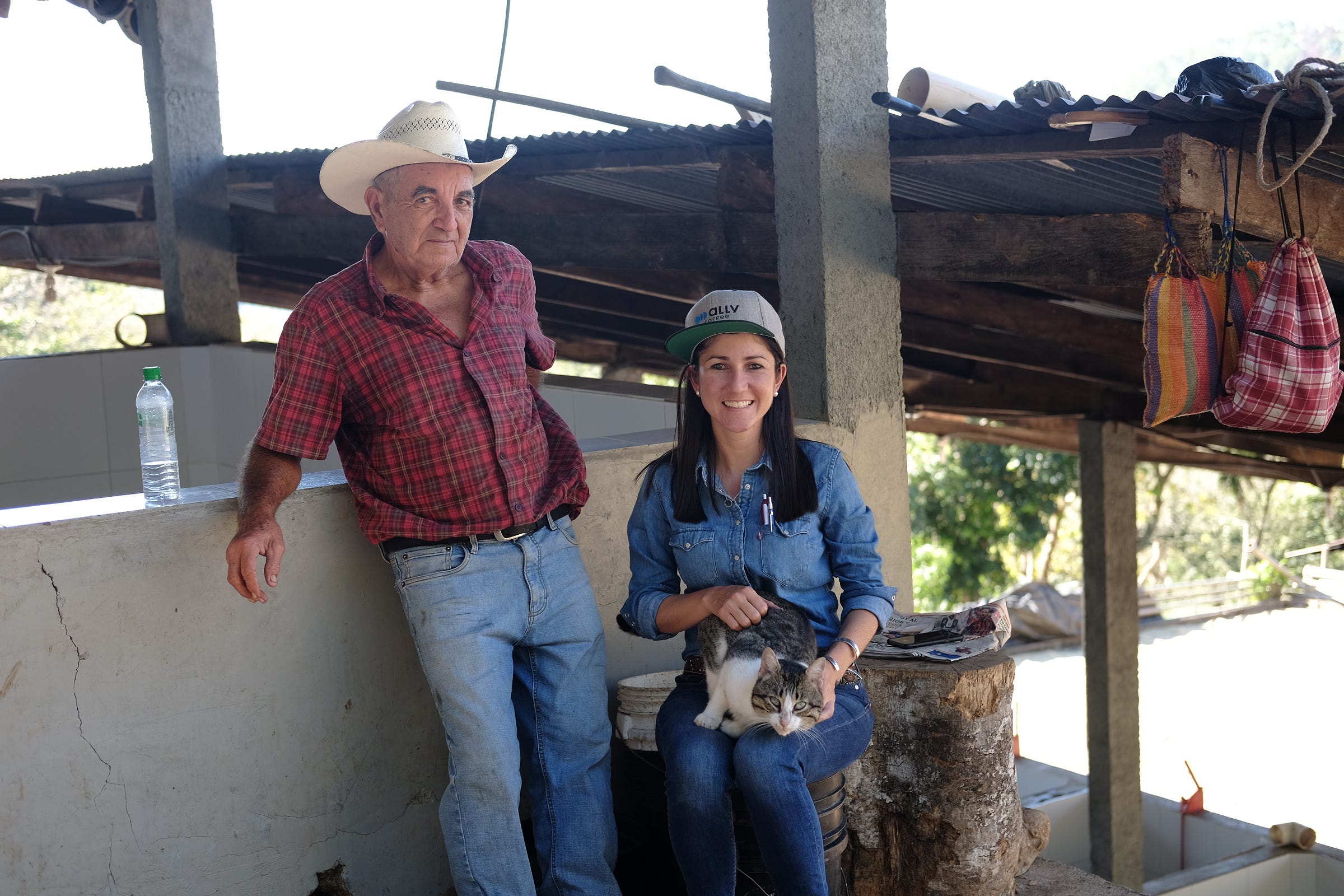 Katia and her father
Katia and her father
From day one, Katia has encountered trouble with machismo in her day-to-day. Unfortunately, Katia had to earn respect as a farmer solely for being female. On her first day as a coffee producer, only two women showed up to the farm to work with her. All others did not feel like working for a woman. Now, after years of struggle, Katia has formed an amazing team in which mutual respect is the main principle.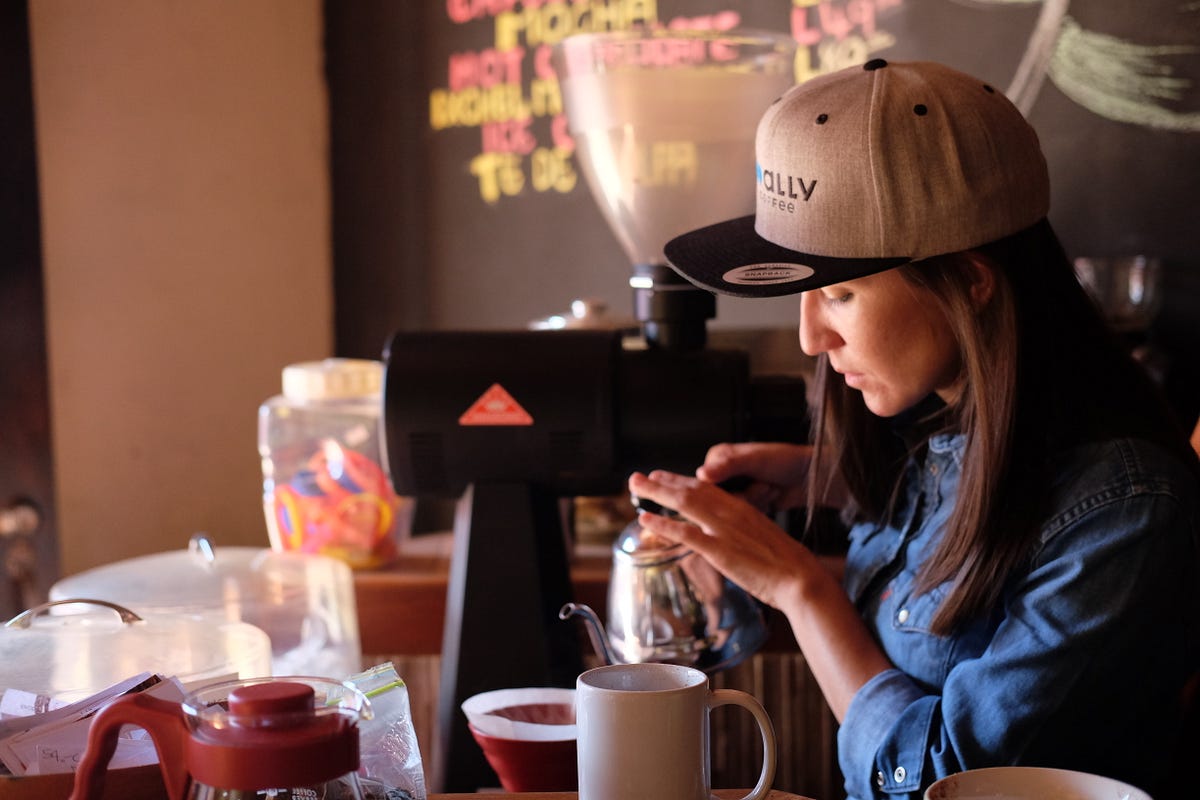 Katia at Cafe Ixchel
Katia at Cafe Ixchel
It is not only Katia who finds herself in this position, many women in Honduras do not enjoy the same opportunities as men. In order to combat this problem and look for a solution, Katia has co-written a scientific paper on the issue. This paper will be presented at the 2019 SCA Expo in Boston this April.
After touring the various plots of the farm with Katia, we returned to her café for a cupping. We cupped about twelve different day lots of washed coffee. Among the day lots, we found two distinct profiles: sweetness-forward with a heavier body and notes of dark chocolate and caramel; delicate and bright with floral notes and more acidity. These profiles largely corresponded with the varieties in the lots; the first was mainly Lempira and IHCAFE 90 and the second was made up of Catuaí lots.
Day 8: Peña Blanca
On day eight, I had the great opportunity to meet with Benjamin Paz at Exportadora San Vicente after meeting him at the Honduras Cup of Excellence.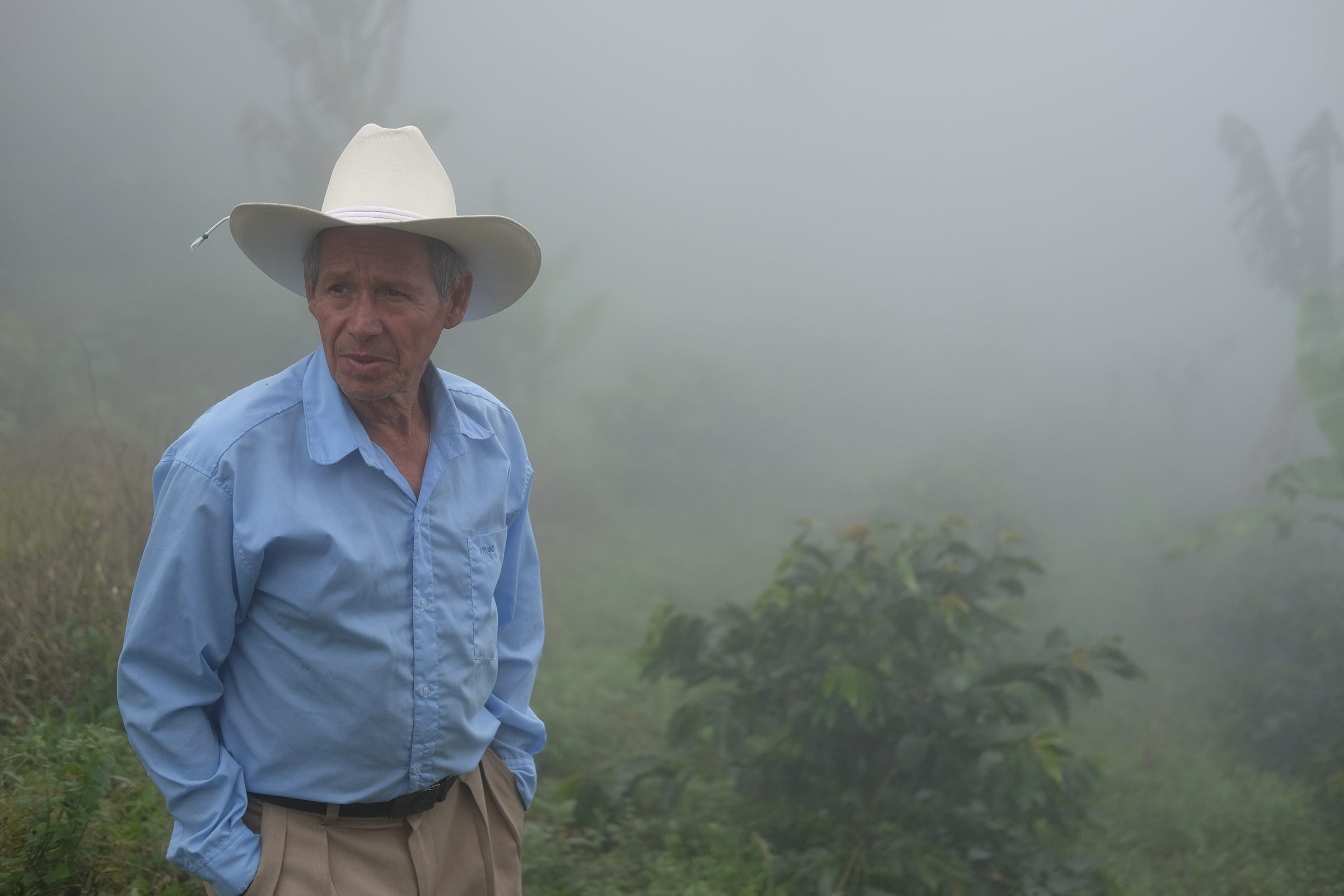 Otilio Leiva on his farm
Otilio Leiva on his farm
Exportadora San Vicente was started by Benjamin and his father over 40 years ago and now the whole family is involved in the day-to-day of the business. Fifteen years ago, Benjamin started the specialty division by participating in the Cup of Excellence and won first place. This achievement inspired them to continue along the specialty coffee path. Now, San Vicente works with 200 producers to produce microlots and sells to myriad international roasters.
The operation is based out of Peña Blanca on the shore of the La Yojao Lake, which sits at the base of the Santa Barbara Mountain. Almost all producing partners live on this cloud-covered mountain. The peak reaches an impressive 2600 meters and can be seen from miles away. Everything above roughly 1900 masl is a national park and most farms sit between 1400 and 1800 masl. Working on one mountain gives Benjamin great insight in the different microclimates of its villages. On the cupping table, the profiles between the different towns are quite distinct and provide subtle differences in generally bright profiles.
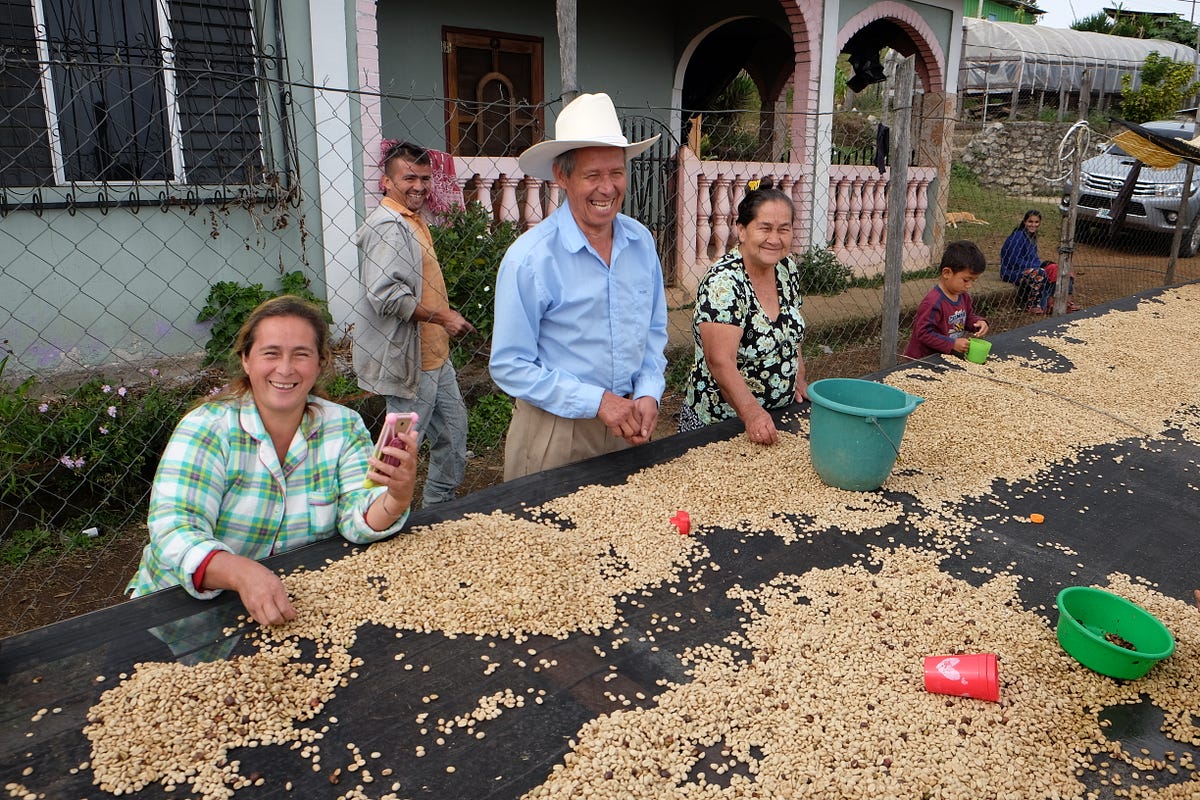
Day 9: Santa Barbara
On the last day of my trip, I visited a producing family whom I had also met at Cup of Excellence. We had been in touch since then and it was a very rewarding experience to be finally able to visit their farm. Pedro Sagastume has been farming coffee organically for many decades; now, as he grows older, he has divided has farm in multiple lots for his sons to work on. The farms are in state-of-the-art condition as well as the central processing facility.
This year, the family has invested in an additional solar dryer to process all coffee on raised beds. Another investment is the six additional hectares planted with Geisha, Typica, SL28, and Pacamara. Together, they have decided that specialty coffee is the way and they do not fear to invest.
My trip to Honduras has been incredibly valuable and the potential is huge. We have the opportunity to work with a multitude of different producers who can each offer a unique selling point. We are very welcome to visit Honduras with our clients and I am very happy that we can add this intriguing origin to the Ally portfolio.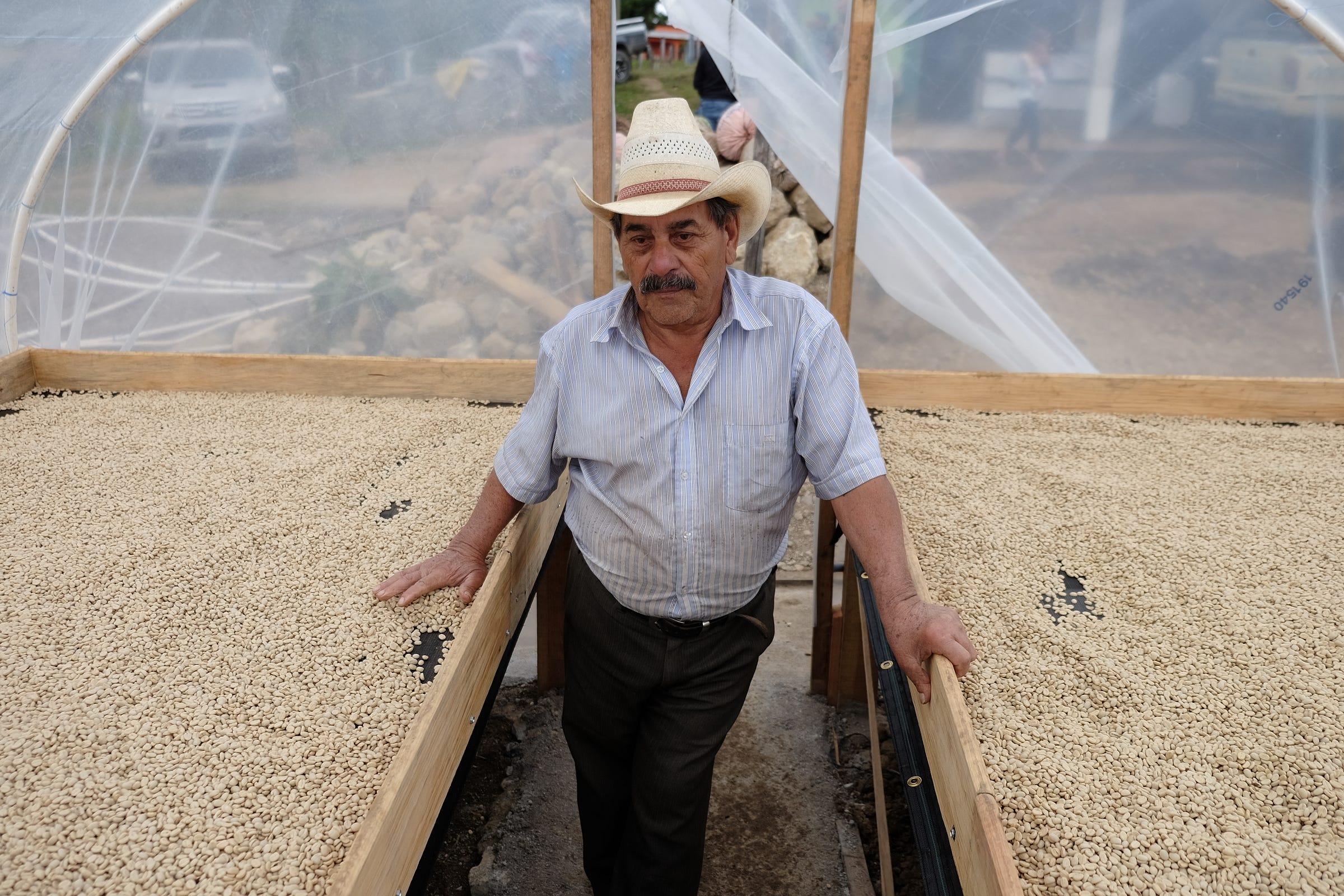 Pedro Moreno on Finca Moreno in Santa Barbara
Pedro Moreno on Finca Moreno in Santa Barbara
Coffees from these cooperatives, farms, and exporters are available to contract. Talk to your Account Manager or fill out the Contact Us form on our website if you are not yet in touch with one of our reps.

